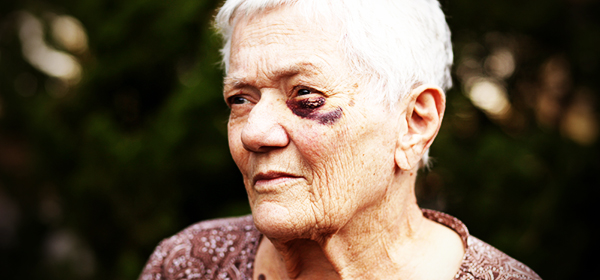An ageing population, strong house prices and solid superannuation balances are resulting in an escalation in elder abuse, according to key sources, with World Elder Abuse Awareness Day this week seeking to highlight the problem.
While elder abuse is starting to be more widely recognised around the world, it is statistically one of the least investigated types of violence in national surveys, and one of the least addressed in national action plans, according to Senior Rights Victoria (SRV).
The organisation estimates that up to 14 per cent of older Australians may be experiencing abuse and says that last year its helpline received 3300 calls – a 25 per cent increase on the previous year.
While elder abuse can be physical, psychological or financial mistreatment by a trusted person, the majority of cases involve financial abuse.
And it’s the source of abuse that often prevents it being reported, says Curtin University law Professor Eileen Webb.
“Theft, fraud, there’s quite a smorgasbord of offences that, if law enforcement wanted to get involved in this, they could use,” she said.
“But in most cases, the older person won’t want the police to get involved, because … it’s your [adult] child – you don’t want your child sent to jail.”
Dr Webb recommends that families put their arrangements into a legal contract to plan for all possible future contingencies and to protect all parties.
Verbal agreements did not have a strong basis in law, she said, and if something went wrong, it could be an expensive and emotional battle for an older person to get their money back.
“The most common scenario is that the older person sells their home, moves in with the [adult] child, often gives the child some money or makes some contribution towards extensions or a granny flat on that property,” she said.
“But they are not on that title, so the adult child can deal with that property as they wish. It’s their property – they can sell it, they can mortgage it.
“We’ve seen cases where houses have literally been sold from under the older person.”
Community lawyer Fran Ottolini said most of her clients were “capable but vulnerable” victims of financial abuse and reiterated the danger of informal family agreements involving the transfer of assets, such as:
- the parent selling their house and agreeing to use the money to build a granny flat or for renovations so they can move into their child’s home
- the parent letting a family member stay at their home rent free in exchange for taking care of them
- the parent giving the child an interest-free loan, agreeing to be a guarantor for their mortgage, or taking out a mortgage on their behalf.
Ms Ottolini said that because of the ad hoc nature of such agreements, it was almost impossible to determine how widespread the problem was.
SRV Manager Jenny Blakey said there was a growing acknowledgement of elder abuse as a form of family violence but that it was still a disconnected issue when it came to financial abuse, which accounted for 75 per cent of their abuse cases.
“Just as respectful relationships within families help prevent family violence, respect for older family members is a primary protection against elder abuse, particularly when it comes to a family’s financial arrangements,” she said.
Ms Blakey said the warning signs of elder abuse might include an older person seeming fearful, anxious or isolated. There may be unexplained financial transactions, and possessions may be disappearing. Changes to a will, property title or other legal documents are also of concern, she said.
“While the mistreatment of an older person may be carried out by one family member, it is often other family members who are best placed to support their parent or grandparent against the abuse, provided they recognise what is happening.”
Older people can reduce the risk of elder abuse by making sure their financial, medical, legal and other affairs are clearly stated and recorded, she said. Older people must also be empowered to recognise the signs of elder abuse and encouraged to state when they are not comfortable with an arrangement.
The Australian Law Reform Commission (ALRC) called for a national register to be created in late 2016, and money for the scheme was set aside in this year’s Federal Budget.
Have you experienced elder abuse or know someone who has? Is it difficult to know who to report the abuse to?
Related articles:
Banks join the chorus for safeguards
$15m to help older Australians
National plan on elder abuse

